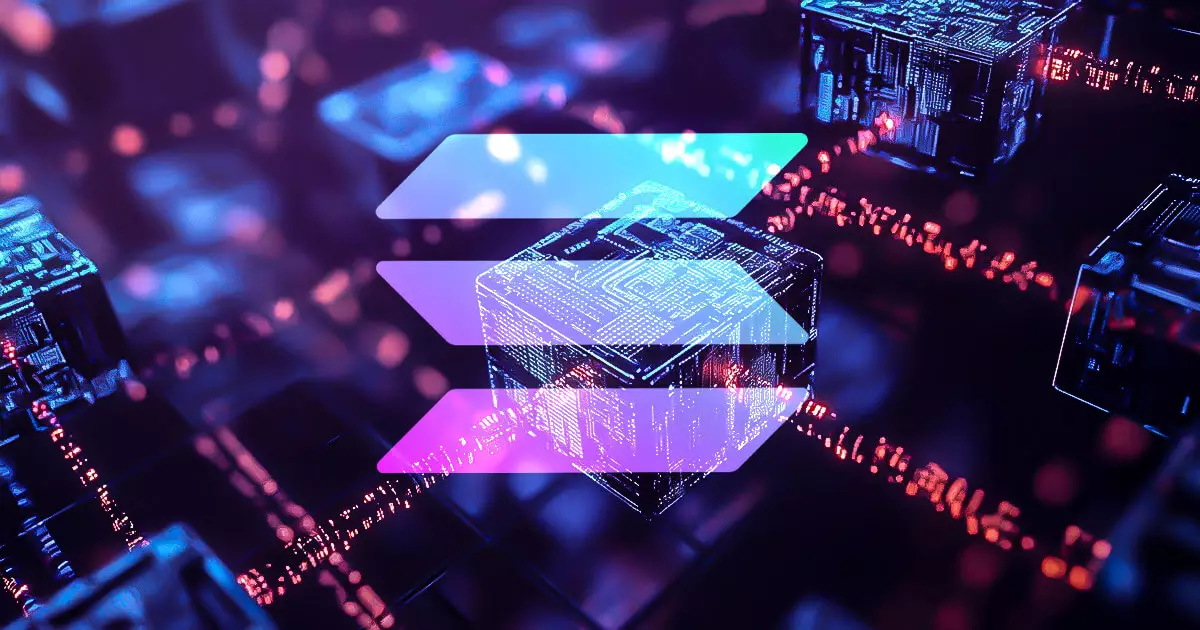The ongoing tension between the Solana blockchain community and cryptocurrency exchange Coinbase has recently risen to the forefront, primarily due to significant delays in transaction processing on the Solana network. Various users took to social media platforms like X (formerly Twitter) to share their frustrations after observing that some transactions took as long as 45 minutes to complete. Such a lag is especially concerning compared to competitors like Base, Algorand, Arbitrum, and Avalanche, which boast much quicker processing times. This discrepancy has incited a wave of skepticism about Coinbase’s commitment to the Solana network and its underlying infrastructure.
In response to the outcry, Coinbase’s support team attributed these prolonged transaction times to either wallet maintenance or inherent blockchain issues. This explanation, however, did not sit well with many in the crypto community, who accused Coinbase of underestimating Solana’s capabilities to promote its own Base network instead. This perception sparked frustration among Solana supporters, who eagerly defended their blockchain’s performance and reliability.
Expert Opinions and Perspectives
Prominent figures from the Solana ecosystem immediately began to counter Coinbase’s narrative. Mert Mumtaz, CEO of Helius Labs, emphasized that the issue lay within Coinbase’s internal indexing systems rather than with Solana itself. His insight was echoed by Austin Federa, Solana’s Head of Strategy, who criticized Coinbase’s lack of transparency in communicating the real source of the issue. Federa highlighted that the delays were due to “boring old internal system issues on the exchange side,” dismissing the notion that Solana’s infrastructure was to blame.
Additionally, a noteworthy community note was appended to Coinbase’s support statement, revealing that transaction delays on Solana had been an ongoing issue for several months. This communication also contrasted Solana’s performance metrics, which showcased its impressive Time to Finality (TTF) of 12 seconds, significantly outpacing Base and Arbitrum, both clocking in at 16 minutes.
Resolution and Remaining Skepticism
Coinbase eventually acknowledged the delays on its status page and confirmed that the issues had been resolved as of November 28. Andrew Allen, a Protocol Specialist at the exchange, noted that the underlying issues affecting Solana’s Send/Receive functions had been addressed, although the user interface had not immediately reflected those changes. While the resolution provided some relief, a segment of the Solana community continued to express discontent towards Coinbase, perceiving the exchange’s actions as dismissive of their network.
Given the complexities of blockchain technology and its interaction with exchange platforms, it’s essential to recognize the potential for miscommunication and technical challenges. Kyle Reidhead, the creator of Milk Road, urged the crypto community to acknowledge Coinbase’s broader contributions to the thriving cryptocurrency ecosystem instead of fixating on these temporary setbacks. His call for a balanced perspective highlights the importance of fostering collaboration rather than allowing rivalries to impede progress in the ever-evolving cryptocurrency landscape.
As the blockchain space continues to grow and evolve, the relationship between exchange platforms and their supporting networks will undoubtedly face challenges. The recent Solana-Coinbase episode serves as a reminder of the importance of effective communication and transparency. Ultimately, both the exchange and the blockchain community must work hand in hand to ensure a seamless user experience and the continued advancement of the crypto industry.


Leave a Reply